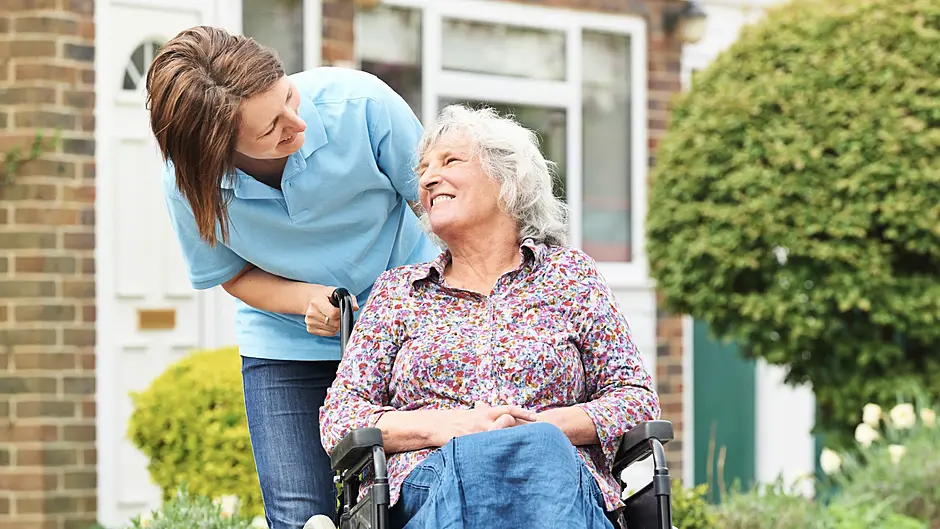PEOPLE providing care for family members often are so busy with their caring responsibilities that they do not always have time to look at what supports are available to them.
Some people do not even think of themselves as carers as they consider their work as part of an unspoken promise to be there for loved ones when they need them.
The two main social welfare payments for carers providing full-time care are Carer’s Allowance and Carer’s Benefit. There is also an annual Carer’s Support Grant.
Q. What is the difference between Carer’s Benefit & Carer’s Allowance?
Carer’s Benefit is a short-term payment paid for up to two years to people who give up employment to care on a full-time basis for someone who requires full-time care and attention.
It is PRSI-based and you have to have a certain number of PRSI contributions paid. People who are self-employed and paying a Class S PRSI contribution will not qualify.
Carer’s Allowance is a means-tested payment for people who are caring on a full-time basis for someone who requires full-time care and attention and will require it for at least 12 months. You must also satisfy the habitual residency condition to qualify for Carer’s Allowance.
Q. What does ‘full time care’ mean?
A person is classified as needing full-time care when they need continual supervision to avoid danger to themselves or they need continual supervision and frequent assistance throughout the day with normal bodily functions. For example, help to walk and get about, eat or drink, get washed or dressed.
The Department of Social Protection will decide if the person needs full-time care. This decision is based on the information that the Carer provides on the application form
The person being cared for must have their doctor complete, sign and stamp the medical report, which is part of the Carer’s Benefit and Carer’s Allowance application form. This medical report is not needed if the person being cared for is a child who is getting domiciliary care allowance.
Q. Do you have to be caring for a set number of hours to qualify for a carer’s payment?
The time spent providing care must not be less than 35 hours per week, over five to seven days. If you are away, you must be able to arrange full-time care for the person you care for.
Q. Carer’s Benefit is for people who leave work to provide care. Does the person have to resign from their job?
No, the person does not have to give up their job if they are applying for Carer’s Benefit. The person can apply for carer’s leave from their employment. This leave allows employees to leave work temporarily to provide full-time care and attention for someone who needs it.
You can take carer’s leave for a minimum of 13 weeks and up to a maximum of 104 weeks.
Carer’s leave from employment is unpaid but your job will be kept open for when you return.
You must have worked for your employer for 12 months without a break in employment. Employers are entitled to at least six weeks written notice from the employee of the intention to take carer’s leave.
Q. How many hours can you work while on Carer’s Benefit or Carer’s Allowance and how much can you earn?
You can be employed, self-employed, in training or in education outside the home for up to a maximum of 18.5 hours per week.
If on Carer’s Benefit, the maximum amount you can earn is €350 per week after tax, PRSI and union dues are deducted.
Currently, if you are single, €350 of your total weekly income is not taken into account in the means test for carer’s allowance. If you are married, in a civil partnership or cohabiting the first €750 of your combined total weekly income is disregarded.
This will change from June 2024. From then, the income disregard for carer’s allowance will increase to €450 for a single person and €900 for a couple.
Q. What is included in the means test for carer’s allowance?
The main sources of income included in the means test for carer’s allowance are any cash income and capital income – this includes savings, investments, shares or any property you have (but not your own home).
The first €50,000 of your capital is not taken into account. Any payment from the Department of Social Protection is not included in the means test
You can get up to €14,000 per year for renting out a room in your own home without it affecting your payment.
Citizens Information staff can help you work out how the means test would apply in your individual situation.
Q. What is the qualifying condition for Half-Rate Carer’s?
If you are in one of the following situations, you may qualify for half-rate Carer’s Allowance:
• Already getting Carer’s Allowance but also meet the qualifying criteria for another social welfare payment
• Changed from another social welfare payment to get Carer’s Allowance
• Caring for someone and being claimed for by a spouse, civil partner or cohabitant
• Getting a social welfare payment other than Carer’s Allowance and caring for someone.
You cannot get half-rate carer’s if you are in receipt of a jobseeker’s payment.
Q. What is the Carer’s Support Grant?
The Carer’s Support Grant is paid annually to carers by the Department of Social Protection (DSP). It used to be called the Respite Care Grant. It amounts to €1,850.
It is paid once a year, usually on the first Thursday in June, for each person you are caring for. It is not taxable. You cannot be working outside the home for more than 18.5 hours or signing for Jobseeker’s Credits. You can apply for this payment even if you are not receiving Carer’s Allowance or Carer’s Benefit.
If you are caring for more than person, you can get the Carer’s Support Grant for each person.
Q. What is the Long Term Carer’s Contribution scheme?
Under the Long-Term Carers Contribution scheme, if you have been a full-time carer for at least 20 years (1,040 weeks), you can get Long-Term Carers Contributions to help you qualify for the State Pension (Contributory).
A Long-Term Carer’s Contribution is the same as a paid contribution on your PRSI record for each week that you provide full-time care. The contribution makes it easier for a carer to qualify for the State Pension Contributory when they reach pension age.
Q. Are there any additional supports available to carer’s that we have not already covered?
If you get carer’s allowance you may also get the Free Household Benefits Package (if you are living with the person you are caring for) and free travel.
If you get carer’s benefit or carer’s allowance, at full or half-rate, you are eligible for a GP visit card.
If the person that you are caring for passes away, your carer’s benefit payment will continue for six weeks following the death, while carer’s allowance continues for 12 weeks.
There are also some tax credits eg. the home carer tax cedit.
There is also an Incapacitated Child Tax Credit and if you maintain a dependent relative, you may qualify for the Dependent Relative Tax Credit. Contact your local CIC for more details as to whether or not these apply in your situation.








